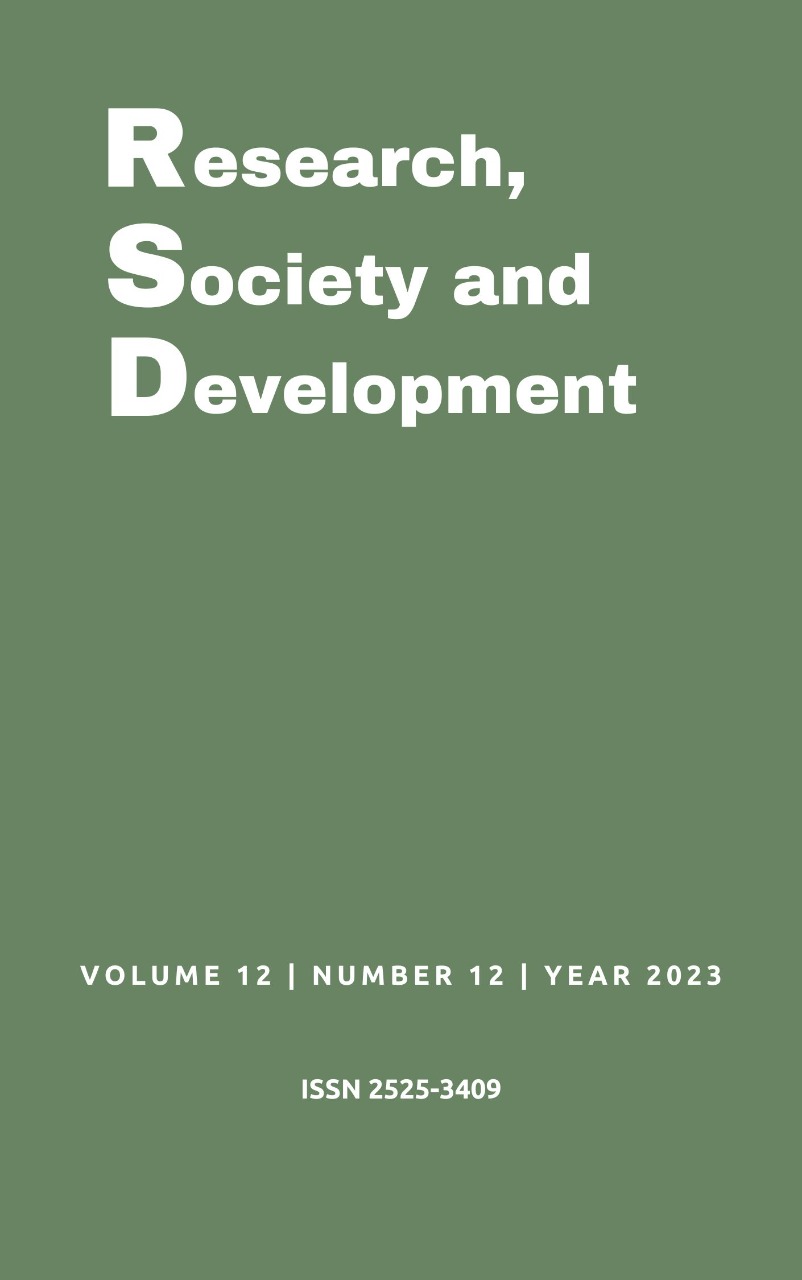Effects of creatine supplementation on resistance exercise: A literature review
DOI:
https://doi.org/10.33448/rsd-v12i12.43857Keywords:
Creatine supplementation; Resistance exercise; Benefits; Harms.Abstract
Creatine supplementation has been the subject of intense study and discussion in the context of resistance exercise. It is a topic that attracts the attention of athletes, bodybuilders and fitness enthusiasts due to its potential benefits in gaining strength and muscle mass. However, this practice is not without critical considerations. Therefore, the present research aims to: analyze the effects of creatine supplementation on resistance exercise, highlighting the benefits associated with it, as well as the possible harms that deserve attention and caution. Bibliographical study was adopted as a research method as there are numerous works published in electronic magazines, articles and books covering the same subject. And through the research carried out, it can be seen that creatine supplementation can be used on an individual approach and, preferably, under the guidance of a health professional, such as a nutritionist or sports doctor, as risks exist when the person does not uses it appropriately.
References
Amaral. A, de S. & Nascimento. O. V. (2020). Efeitos de suplementação de creatina no desempenho humano: Uma revisão de literatura. 2020.
Ataídes, K. C., Neto Filho, M. A., & Dos Santos, J. S. G. (2022). Benefícios e malefícios da suplementação com creatina. Scientific Electronic Archives, 15(10), 2022.
Baldin, A. E. et al. (2021). Efeitos da suplementação crônica da creatina sobre a função renal: revisão da literatura. Pesquisa, Sociedade e Desenvolvimento, 10(14), e89101421867-e89101421867, 2021.
Farias, T. R. D. (2022). Efeitos da suplementação da creatina sobre a força e hipertrofia muscular em praticantes de exercícios resistidos (monografia da Universidade Federal do Pernanbuco) - Recife, 2022.
Martins, Y. de L. X. et al. (2020). Efeitos de diferentes formas de suplementação de creatina em praticantes de musculação: estudo exploratório. RBNE - Revista Brasileira de Nutrição Esportiva, 13(82), 2020.
Macedo, T. D. S., Sousa A. L. De, & Fernandez, N. C. (2018). Suplementação e consumo alimentar em praticantes de musculação. Revista Brasileira de Nutrição Esportiva, São Paulo. 11(68), 974-985.
Oliveira Júnior, A. G. (2023). Efeitos da creatina na suplementação nutricional para o desempenho físico. Segurança alimentar e nutricional. Revista de Nutrição Esportiva. 2(11), Maceió – AL, 2023.
Panta, R., & Silva Filho, J. N. (2020). Efeitos da suplementação de creatina na força muscular de praticantes de musculação: uma revisão sistemática. Revista Brasileira de Nutrição Esportiva, 9(54). 2020.
Reis, E. L., Carmargos, G. L., Oliveira, R. A. R & Domingues, S. F. (2017). Utilização de recursos ergogênicos e suplementos alimentares por praticantes de musculação em academias. Revista Brasileira de Nutrição Esportiva, 11(62), 219-231.
Rufino, B. M., Ribeiro, L. S. de C., Fernandes, G. A., & Paneli, C. de C. (2022). O uso da creatina no treinamento resistido para hipertrofia. Anais do fórum de iniciação científica do unifunec, 13(13). 2022.
Silva, A. C. G. & Junior, O. M. R. (2020). Riscos e benefícios no uso de suplementos nutricionais na atividade física. Brazilian Journal of Development, 6(12), 96770- 96784, 2020.
Silva, A. M. & Junior, O. M. R. (2021). Benefícios no uso do suplemento creatina na hipertrofia e força. Research, Society and Development, 10(16), e136101623886-e136101623886, 2021
Santos, J. P. C., Martins, G. H. S & Ferreira, J. C. S. (2021). O uso da creatina no treinamento de força e na melhoria do desempenho físico. Research, Society and Development, 10(11), e59101119410-e59101119410, 2021.
Vargas, A., Parizzi, S. V., Liberali, R. & Navarro, F. (2019). Utilização da creatina no treinamento de força- Revisão Sistemática. Revista Brasileira de Nutrição Esportiva. 8(23), 393-400. 2019.
Downloads
Published
How to Cite
Issue
Section
License
Copyright (c) 2023 Rodrigo Matos Rodrigues; Nayran Moreira Silva

This work is licensed under a Creative Commons Attribution 4.0 International License.
Authors who publish with this journal agree to the following terms:
1) Authors retain copyright and grant the journal right of first publication with the work simultaneously licensed under a Creative Commons Attribution License that allows others to share the work with an acknowledgement of the work's authorship and initial publication in this journal.
2) Authors are able to enter into separate, additional contractual arrangements for the non-exclusive distribution of the journal's published version of the work (e.g., post it to an institutional repository or publish it in a book), with an acknowledgement of its initial publication in this journal.
3) Authors are permitted and encouraged to post their work online (e.g., in institutional repositories or on their website) prior to and during the submission process, as it can lead to productive exchanges, as well as earlier and greater citation of published work.

